The battle for global influence has started from Seoul
Adelina Marini, November 12, 2010
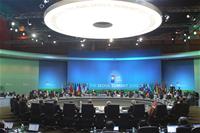 As euinside has forecast several days ago, the biggest problem at the G20 summit in Seoul proved to be the battle for global influence. This became especially clear from the statement of the American president Barack Obama, subjected to pressure from his partners in the Group of the twenty leading industrialised nations and emerging markets because of Fed's decision to print more money and pour $600 bn in the economy. Before the beginning of the official working dinner of the twenty, Mr Obama said briefly and clearly:
As euinside has forecast several days ago, the biggest problem at the G20 summit in Seoul proved to be the battle for global influence. This became especially clear from the statement of the American president Barack Obama, subjected to pressure from his partners in the Group of the twenty leading industrialised nations and emerging markets because of Fed's decision to print more money and pour $600 bn in the economy. Before the beginning of the official working dinner of the twenty, Mr Obama said briefly and clearly:
"The most important thing that the US can do for the world economy is to grow because we continue to be the world's largest market and a huge engine for all other countries to grow - countries like Germany that export heavily, benefit from our open markets and there's buying for our goods. That's true for every G20 member. And so the point that we have consistently made is that in a prudent stable way we wanna make sure that we are boosting growth rates at home as well as abroad. It is difficult to do that if we start seeing the huge imbalances redevelop that help to contribute to a crisis that we have just went through".
For now no one is challenging openly that the US continues to be the world's leading economy, at least politically. And if president Obama has compared the economy of his country with a huge engine, the EU leaders, representing the EU in Seoul used the same metaphor - the president of the European Commission Jose Manuel Barroso and the European Council's president Herman van Rompuy. At a press conference on Thursday Mr Barroso noted:
"This summit is a credibility test. [...] The G20 has prevented the boat from 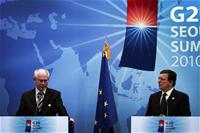 sinking, we now have picked up speed but not all engines are running with full power. The G20 must show that it is indeed the global forum for global cooperation. Particularly the G20 must tackle imbalances decisively. All major economies must do rebalancing. No one should seek growth for its own sake at the expense of others. This would lead to a race to the bottom and the task of G20 is to avoid that. In all this the IMF is crucial".
sinking, we now have picked up speed but not all engines are running with full power. The G20 must show that it is indeed the global forum for global cooperation. Particularly the G20 must tackle imbalances decisively. All major economies must do rebalancing. No one should seek growth for its own sake at the expense of others. This would lead to a race to the bottom and the task of G20 is to avoid that. In all this the IMF is crucial".
The main conflicting point continue to be exchange rates. Although some analysts and representatives of the negotiators in South Korea prefer not to use the expression "currency wars", the leaders themselves use it, although more often adding to it "imbalances". Imbalances, however, are directly related to exchange rates. The two main "accused" at the summit are the Chinese president Hu Jintao and the American - Barack Obama. The former is being heavily criticised for the artificial suppression of renminbi and the latter that through printing more money he is artificially lowering the dollar which is the only global reserve currency.
 Both leaders met on Thursday for a bilateral summit but with no success. In the meantime the twenty had agreed to find a solution to the currency problem. Earlier the British PM David Cameron stated firmly for the BBC: "We’re going to fight currency wars. We’re going to fight competitive devaluations".
Both leaders met on Thursday for a bilateral summit but with no success. In the meantime the twenty had agreed to find a solution to the currency problem. Earlier the British PM David Cameron stated firmly for the BBC: "We’re going to fight currency wars. We’re going to fight competitive devaluations".
An interesting element (again) at the G20 summit is the presence of the European Union. In spite that Barroso and Van Rompuy announced firmly that they had gone to Seoul with the single position of the 27 member states, the way they responded to the questions of journalists before the beginning of the official dinner, again raised the question - do they both have a mandate beyond the European position, confirmed at the October European Council? Asked to comment on Fed's decision to pour $600 bn into the American economy, Jose Manuel Barroso tried to avoid a direct answer by saying:
"First of all and as you know in the European Commission we do not make comments on decisions taken by independent monetary authorities. Having said this, I know that this has become a very important issue in the overall debate. That is why I think it is important the G20 summit to listen to president Obama and try better understand of the different aspects of the decision of the Fed. Secondly, we should also recognise that growth in the US is important and that growth in the US will bring benefits to Europe and the world economy. But of course I also understand the concerns of others and this is why the G20 is so important. It is especially important to avoid negative spillovers of decisions taken by one country and the rest of the world".
On the issue what the Chinese currency is based on, the European Council  president Herman van Rompuy added that exchange rates should reflect economic fundamentals. Secondly, he pointed out, these fundamentals must be corrected in terms of inflation, which is not a serious problem today, but also with regard to current account balance of payments. Practically this statement fully supports Germany's position, insisting that exchange rates must reflect the economic realities of each country. In fact, president Obama, at least in words, shares the same opinion. He added that he expected the summit communique to include mechanisms that could help track and boost balanced and sustainable growth.
president Herman van Rompuy added that exchange rates should reflect economic fundamentals. Secondly, he pointed out, these fundamentals must be corrected in terms of inflation, which is not a serious problem today, but also with regard to current account balance of payments. Practically this statement fully supports Germany's position, insisting that exchange rates must reflect the economic realities of each country. In fact, president Obama, at least in words, shares the same opinion. He added that he expected the summit communique to include mechanisms that could help track and boost balanced and sustainable growth.
In spite of the efforts for keeping the bonne tonne and avoiding direct confrontation, however, unsolved remains another serious problem of which Herman van Rompuy hinted but refused to elaborate on - what are the main economic fundamentals that could show as precisely as possible where imbalances are possible. And they can be seen clearly in the last months - the countries that rely mainly on exports can boast high competitiveness and productivity. The US also believes that productivity is a key element for achieving sustainable growth but, as this requires restructuring of the entire economy which takes time, at this stage they prefer boosting growth on the basis of lending and consumption.
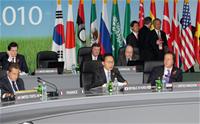 This is why Fed's chairman Ben Bernanke explained his decision for printing more money for the economy with the need people to take credits so that they could consume. The danger in such an approach is that if economy's restructuring aimed at increasing competitiveness, is being delayed, a repeat of the financial crisis is not impossible, caused namely by Americans' inability to pay their debts that lead to the bankruptcy of several systemically important banks.
This is why Fed's chairman Ben Bernanke explained his decision for printing more money for the economy with the need people to take credits so that they could consume. The danger in such an approach is that if economy's restructuring aimed at increasing competitiveness, is being delayed, a repeat of the financial crisis is not impossible, caused namely by Americans' inability to pay their debts that lead to the bankruptcy of several systemically important banks.
This is the reason why the EU to insist mainly on implementation of the new capital requirements, set in the Basel III agreement and to avoid protectionism. For Brussels it still is of utmost importance the reform of international financial institutions and financial regulation. For now it is hard to see conflicts between the common European position and national interests of the leading European economies, represented at the G20. The unanimity is visible from the video from the beginning of today's session of the Group - Commission's president Barroso spoke to the British PM David Cameron, to the Spanish Jose Luis Zapatero, to the German chancellor Angela Merkel.
More from the summit later on euinside.
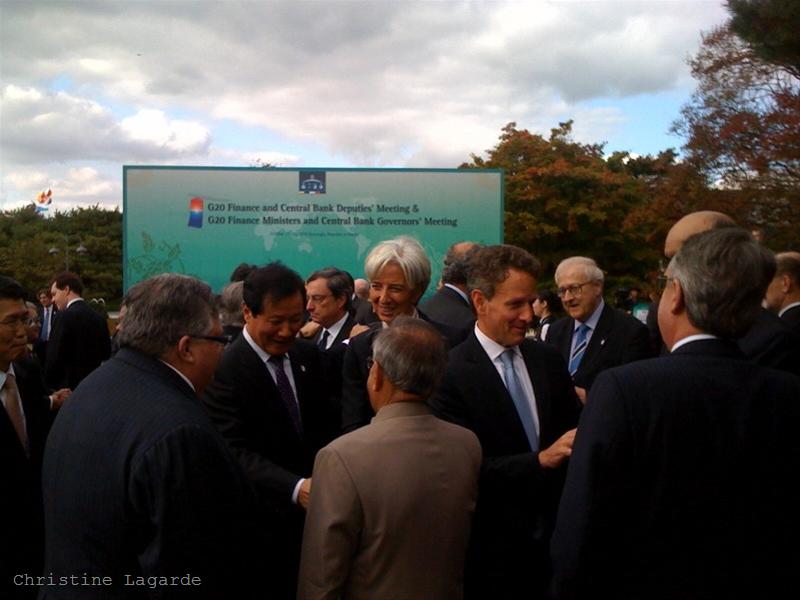 | © Christine Lagarde
| © Christine Lagarde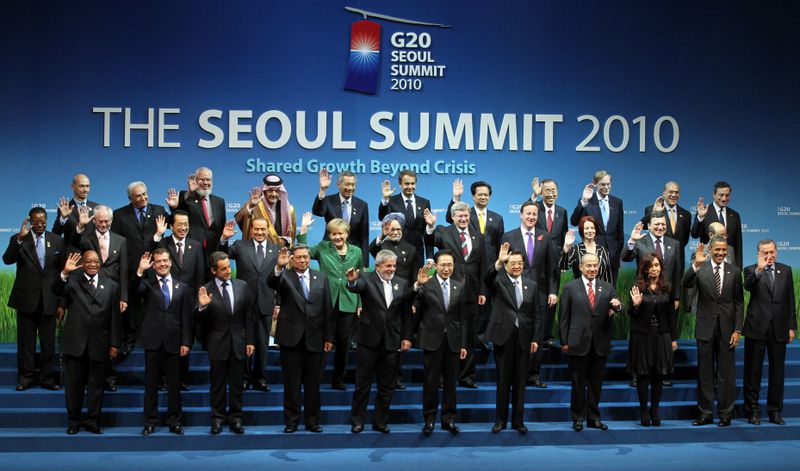 | © G20
| © G20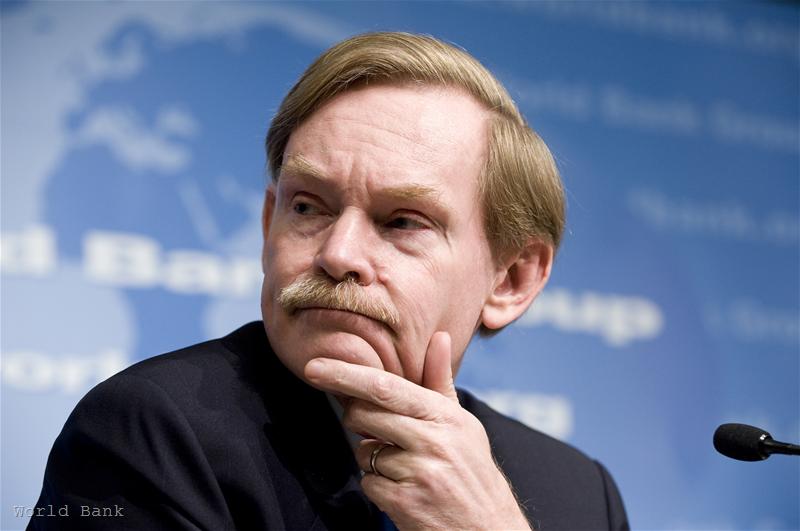 | © World Bank
| © World Bank